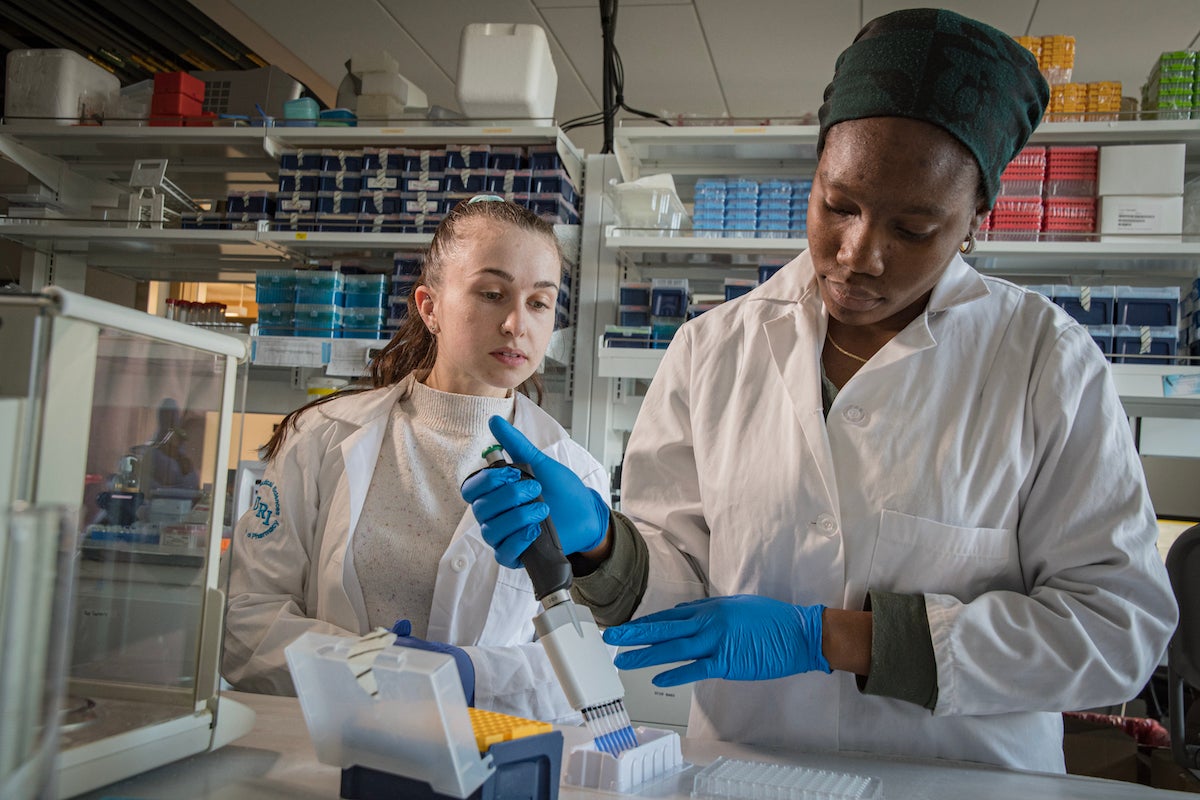Doctor of Pharmacy program ranks 31 nationally, College’s highest mark, in U.S. News & World Report rankings
The University of Rhode Island College of Pharmacy’s programs are again ranked among the top pharmacy colleges in the country, with the Doctor of Pharmacy program making an impressive rise over the four years since the last survey, according to the latest U.S. News & World Report rankings.
The College’s PharmD program is now ranked number 31 among the 141 pharmacy colleges in the United States, the college’s highest rank to date. The program has been rising steadily through the ranks in recent years, improving from number 40 in the last survey in 2020, and number 46 in 2016.
“We are thrilled to share that the URI College of Pharmacy has ascended to the 31st spot in U.S. News & World Report’s Best Colleges of Pharmacy rankings, a climb from 40th,” said Dean Kerry LaPlante. “This achievement is due to the unwavering dedication of our alumni, faculty, staff, and students. This ranking reflects our commitment to educational excellence, impactful research, and service to community health.”
The U.S. News & World Report’s rankings were computed from the results of peer assessment surveys completed by deans, other administrators or faculty members at accredited degree schools. Respondents rated the academic quality of programs on a scale of 1 (marginal) to 5 (outstanding).
The URI College of Pharmacy continues to be a national leader in pharmacy education and research, garnering the most research funding among all colleges of pharmacy in New England over the last year, according to the American Academy of Colleges of Pharmacy. This year, the College has the highest first-year postgraduate residency placement rate in New England at 85 percent, placing it in the top 10 in the country, and a second-year placement rate of 100 percent; a first-time pass rate of 86 percent on the North American Pharmacist Licensure Examination, and a graduate employment rate of 99 percent.
“In this proud moment, we also extend our appreciation to our alumni, whose support has been crucial in raising our profile both nationally and globally,” LaPlante said. “As we celebrate, we remain committed to advancing our standards and embracing the ongoing work that deserves such recognition.”
In addition to the 0-6 PharmD program, allowing students to complete the degree just six years after graduating high school, the URI College of Pharmacy also offers Master’s and Ph.D. programs, as well as a Bachelor of Science in Pharmaceutical Sciences. Visit the URI College of Pharmacy website for more information and to apply.

